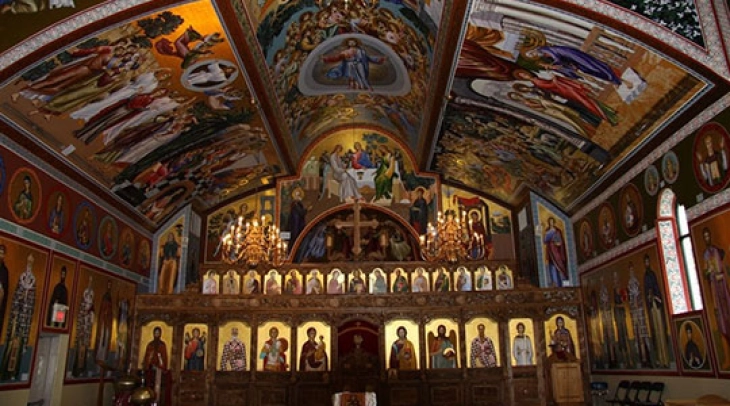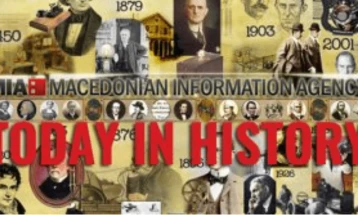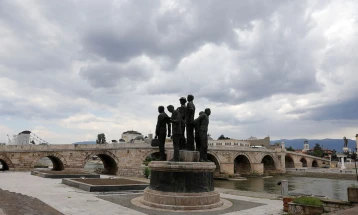Religious calendars
- Macedonian Orthodox Church Calendar; The Hieromartyr Zenobius and his sister Zenobia

12 November 2024 (MIA)
Macedonian Orthodox Church Calendar
The Hieromartyr Zenobius and his sister Zenobia
From the town of Aegae in Cilicia, they inherited the true Faith and great material wealth from their parents. Inflamed with zeal for the Faith, they, with great love, gave away their riches to the poor. Because they were so open-handed, God shielded these hands from every evil intent by men or demons. The merciful hands of Zenobius, which gave to the poor, were endowed by God with the gift of wonderworking, so that Zenobius was able to heal the sick of every sort of infirmity simply by the touch of his hand, and he was made Bishop of Aegae. At a time of persecution, the judge Licius seized him and said: ‘I offer you the two: life and death – life if you bow down to the gods, and death if you do not.’ Holy Zenobius replied: ‘Life without Christ is not life, but death; and death for Christ’s sake is not death, but life.’ When Zenobius was put to harsh torture, his sister presented herself before the judge and said: ‘I also want to drink this cup of suffering and be crowned with that wreath.’ After torture by fire and in boiling pitch, they were both beheaded with the sword in about 285, and thus brother and sister entered into the immortal Kingdom of Christ the King.
Catholic Calendar
Josaphat Kuncevic of Polotsk (1580-1623)
He was born in 1580 (1584 according to some authorities) in Vladimir, the capital of Volynia in the Ukraine, then a Polish province. Though his parents belonged to the nobility, they had gone into trade with some success, and his father even became town councilor. Josaphat (he was baptized John) was first apprenticed to a merchant in Vilna in Lithuania, with whom he worked until 1604, when he became a monk in the Basilian house at Vilua. The Ruthenian and Ukrainian Christians, the vast majority of whom were of the Byzantine rite, were deeply divided, since the reunion of their church with Rome had been proclaimed by most of their bishops at Brest-Litovsk in 1596. In 1623, while visiting Vitebsk, he was attacked by a nationalist crowd, cut down and shot. His body was taken back to Pskov, and on its journey received much reverence, even from his enemies. His martyrdom assured the survival of the Catholic Slavonic church. Its members have different customs, canons, liturgy and language from the Poles, who are Latin Catholics, while they are independent of Moscow and the Russians because of their allegiance to Rome; they have, therefore, become an important focus of the Ruthenian nationalist movements in recent times.







